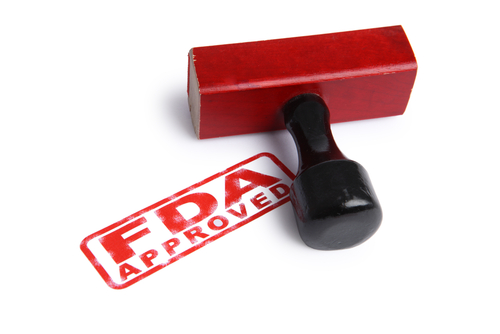FDA Expands Ferriprox Approval to SCD Patients With Iron Overload

The U.S. Food and Drug Administration (FDA) has expanded the label of Chiesi Global Rare Diseases’ iron-binding oral treatment Ferriprox (deferiprone) to include patients ages 3 and older who have blood transfusion-induced iron overload due to sickle cell disease (SCD) or other anemias.
The therapy was first approved in 2011 for transfusional iron overload in people with thalassemia, another inherited blood disorder, when current iron-binding, or iron-chelating, treatment was ineffective.
Ferriprox oral tablets are indicated for adult and pediatric patients, ages 8 and older, while its oral solution is indicated for those ages 3 and older.
SCD is caused by a genetic mutation that leads to the production of defective hemoglobin, the protein in red blood cells that transports oxygen. This so-called sickle hemoglobin impairs oxygen transport throughout the body and increases blood viscosity (thickness and stickiness), leading to pain crises and organ damage.
Notably, kidney complications affect nearly 30–50% of people with SCD, and are the main cause of death in 16–18% of adult patients.
Blood transfusions, which deliver normal red blood cells to patients, are commonly used to help lessen anemia and lower blood viscosity in SCD patients. However, this approach can itself lead to several complications, such as iron overload (excessive iron buildup in the body) that may damage the heart, liver, and other organs.
Iron-chelating therapies are agents that bind to iron and dampen its reactivity by helping the body eliminate it, mainly through urine. For this reason, these medicines are a common option for SCD patients undergoing blood transfusions.
“People who are living with SCD face significant challenges with pain and organ damage that can greatly impact their quality of life, and most who need blood transfusions also need iron chelation therapy including those with known kidney issues who have limited treatment options,” Giacomo Chiesi, Chiesi’s head, said in a press release.
“We believe that delivering an iron chelation therapy that has no dosage adjustment required for patients with mild to severe renal impairment may address a significant unmet need in SCD,” Chiesi added.
Originally developed by ApoPharma and acquired by Chiesi in 2020, Ferriprox is a lab-made, orally available iron-chelating agent that reduces iron levels by entering cells and removing toxic iron from organ tissues and fluids.
Results from a previous Phase 4 clinical trial (NCT02041299) in people with SCD and other transfusion-dependent anemias showed that Ferriprox was not inferior to Novartis’ iron-chelating agent Desferal (deferoxamine mesylate) at reducing iron levels in the liver after one year of treatment.
In addition, the trial’s extension study (NCT02443545), in which all patients received Ferriprox, confirmed that liver iron levels continued to drop progressively up to three years.
Particularly, mean iron levels in the liver dropped from 14.93 mg/g per dry weight (dw) at treatment start to 12.30 mg/g dw after one year, 11.19 mg/g dw after two years, and 10.45 mg/g dw after three years of Ferriprox treatment.
The most commonly reported adverse side effects during Ferriprox clinical trials in patients with SCD or other anemias included: fever; abdominal pain; bone pain; headache; vomiting; nausea; pain in the extremities, back, joints, and throat; SCD crisis; higher-than-normal levels of liver enzymes (suggestive of liver damage and inflammation); common cold; cough; and neutropenia, or low neutrophils counts.
Neutrophils are a type of immune cell involved in the fight against infections. A severe drop in their levels may increase the risk of infection, which can lead to death.
A warning regarding the possibility of severe neutropenia with Ferriprox treatment is included in its label, as well as a recommendation for monitoring neutrophil levels weekly while receiving the medication and to interrupt treatment in the presence of an infection.
Healthcare professionals and patients can access a team of specialists able to provide individual support as well as information about Ferriprox’s prescription, reimbursement, financial assistance, and product refills through Chiesi’s Total Care program. For more information call 866–758–7071.
“We have a long history of commitment to the rare disease community and this FDA approval is a testament to the investments we continue to make in scientific research and development with patients at the center of everything we do,” Chiesi said.
“We would like to thank the patients and the SCD community for their participation in clinical studies because without their support this would not have been possible,” he added.






